getting to know Brad q&a
In the past you’ve been known to be an ‘anti-technology’ athlete. Is this still true today, or do you now train with some high-tech gadgets? Have you hired a coach, or are you still going at it on your own? Are there any training partners who’ve helped you with the comeback?
I had no choice in the early days of my career as to whether I had a coach or not or any technology/gadgets helping my progression. I came from a blue-collar small sugar town of 200 people when Triathlon was considered or perceived as a freakish pastime. There was no one to train with in any of the three disciplines so I learnt by trial and error.
When I first turned pro, I had a weakness on the bike because I was at boarding school and could only train on a stationary bike in a shed at 10.30pm after study. So, my graduation was not only the obligatory binge drinking farewell session, but a punishing hung over 70km headwind ride home and the beginning of my pro career. My Dad said “Choosing this as your career path is not a holiday you know”. I was doing 1000km a week on the bike to improve the weakness. Although this could be considered the “error” in trial and error, it laid the foundations and attitude I needed for the road ahead.
Now these days I need all the help I can get, and I’ve really turned into a bit of a gadget junkie to help with time management and to extract the most from every session I do.
The technology has definitely improved my earlier training techniques – where once a week at home in North Queensland I would do a quality session on the stationary bike and it was so hot, 100% humidity and 35 degrees Celsius. I would have the music cranked and a hose wrapped around me top to toe Anaconda style with holes poked in it spraying water over me. It wasn’t the Amazon, but the look certainly was primitive yet effective.
In the 90’s I can remember being at a race where a bike mechanic needed to adjust my gears a little and he was shocked, I don’t know why, by the fact I had a nail holding the rear derailler to the frame. A bit of bush mechanics never went astray in my world.
Are you still upset that you weren’t able to win an appeal to get a spot at the Sydney Olympics? How hard was it to watch that event knowing that you held the course record?
Not at all, it would have been great to have been given the chance to get to the Olympics, but I had to be able to look back and say that I did everything in my power to be part of the Olympics. That meant before the accident training and racing to the best of my ability, and after, fighting for a spot through an appeals process. No regrets and no rock unturned.
Would you still be competing at your age if you had not had the accident back in 2000, or are you trying to make up for lost time in the past?
I’m actually trying to delay an early mid-life crisis! It’s not really making up for lost time because the goal posts have changed. That is how I am approaching diving back in the deep end. All I can say is that I’m doing something that I love that has consumed my life for the last 24 years. Tell me how to switch that off and I won’t look back but even with getting my butt kicked all over town, for now, the multi-sport addiction continues. In returning though, at times it is a love/hate relationship with the fact that when things are on track you can’t get the grin off my face and then contrary to that when I limp home from a run, the emotions sink. I live in either end of the spectrum with not much in between. That is just starting off though I’m sure. I approach it with two steps forward one step back attitude, sooner or later I may get to the top of the staircase.
Apart from the accident you’ve had your fair share of injuries. Could you give us a brief run-down of the injuries you’ve suffered and what it took to overcome them?
Longevity makes the list look more impressive, but I’ve had Achilles issues over the years, torn solius, torn glutiel, torn hip flexor, a dislocated shoulder that used to pop in my sleep or if I sneezed. Cancun Worlds one year it came out on the bike, I had a shoulder reconstruction to solve that.
I had a year off running with a sartorius bursor problem. That was the last time I was trying to come back and I could only walk, so I used to walk to and from swimming every day averaging 100 to 120k a week. I tried everything to get rid of that one, lots of physio, orthotics, deep needling until one day it just decided it had delivered enough character building and backed off. Lately I have had calf problems, about 25 small tears that a lot of strengthening has overcome, touch wood.
What do you consider to be some of your top performances from your pre-accident career? Which races are you most proud of?
I’ve had some great one-off races but what I would define as a successful career would be my consistency and longevity. Thus, the races I am probably most proud of were the Grand Prix Series we had in Australia.
It was the first time we were on TV so my local home town could see I wasn’t just a bum that needed to get a job. Every race had great spectator following in formats that were enjoyable to the athlete, dynamic, spectator friendly and unpredictable. There were indoor races, Enduro’s which were two times the swim, bike, run format back to back (which I still think should be the Olympic distance format to make triathlon a true three discipline sport and stop them turning into just running races) and other multi-lap formats set up in contained areas producing crashes and drama not seen in normal tri’s.
That series I won seven years on the trot and with 30 races during that time I won twenty of them with the other 10 either placing second or third, apart from one bad day.
I can also find just as much satisfaction in the local race at home – I always wanted to win as a kid where my parents could be there and be part of it all. I recently went back and had a win at that race, 22 years after the first time I won it.
The World Cup series were always hard fought, so they were very satisfying as well on an international level.
What advice would you give an athlete attempting to recover from a serious injury or accident?
I think the physical aspects of injury are obviously for the quacks to solve but it is more of a challenge dealing with the mental side of things especially if your plans change in the blink of an eye, like mine were.
You have to go with your instinct as to what recovery and advice will work for you. It’s amazing how every man and his dog has some quick fix that will cure you in no time. It’s great to have input from all directions but go with what works best for you. If you’re desperate and nothing else has worked sure try the local Sharmin he may just come through for you.
Brad Beven OAM
Byron Bay Triathlon Ambassador
ITU World Hall of Fame
Australia Hall of Fame


